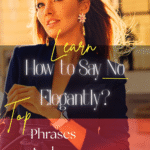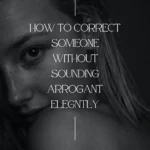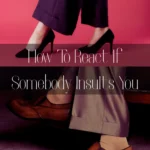Top Elegant Conversation Starters for Sophisticated First Impressions
—Because class begins the moment you speak.
“People may forget what you said, but not how you made them feel.” – Maya Angelou
Have you ever noticed how the loudest person in the room isn’t usually the one you remember? It’s the one who says something insightful, something that makes you tilt your head and think, “Hmm, interesting”. A refined person knows how to begin a conversation with charm, warmth, and quiet confidence.
Now, be honest, haven’t you been in those situations at a cocktail party, an art gala, a quiet dinner, or networking among the polished and powerful? and just felt a little…stuck?l Like your tongue suddenly forgot how to form a coherent sentence? We’ve all been there, haven’t we? So, the real question is, what are those magical phrases, those elegant little keys that unlock a meaningful conversation instead of just awkward silence?
What you say first can shape how you’re remembered. Not by volume. But by value.
So let’s explore what refined small talk is. Conversation starters that are Sophisticated, intelligent, and undeniably elegant.
Now, before discussing that in deep, I want to first discuss what Elegant Starters are and what Awkward Starters are:
Elegant Starters:
- They Observe: They often start with a genuine observation about the environment or a relevant detail about the person. Think of: noticing the ambiance, inquiring about a shared connection (the host), or complimenting a unique accessory. These show you’re present and attentive.
- They Invite: They’re phrased as open-ended questions that encourage the other person to share. “Have you been to events like this before?” isn’t a yes/no trap; it’s an invitation to discuss experiences.
- They Connect: They aim to find common ground or a shared point of interest without being overly personal or demanding. Asking about the host creates an immediate link.
- They Respect Boundaries: They’re generally light, positive, and don’t put the other person on the spot or force them into uncomfortable territory.
Awkward Starters:
- They’re Generic: Think of the most common, “So, what do you do?” at a social gathering. It’s not inherently bad, but it lacks finesse and can feel like an interrogation.
- They’re Too Personal Too Soon: Launching into deep, personal questions before establishing any rapport can be off-putting. “Are you married?” or “How much money do you make?” are definitely in this category!
- They’re Self-Focused: Starting with a long monologue about yourself without showing any interest in the other person can come across as self-absorbed.
- They’re Negative or Complaining: Beginning a conversation with a gripe about the venue, the food, or the crowd immediately sets a negative tone.
- They’re Cliché or Overused: Lines that people have heard a million times before lack originality and don’t make you stand out in a positive way.
1. The Setting Shapes the Sentence
One key trait of sophisticated people? They never say the same thing twice in different rooms.
Elegant conversation starters are custom-fit to the moment.
You wouldn’t exactly walk up to someone at a funeral and say, “So, what do you think of the buffet?” (Please tell me you haven’t witnessed that!). It’s all about reading the room, isn’t it? Being that observant person who picks up on the subtle cues.
At a Classy Social Gathering or Dinner Party
- “The ambiance here is wonderful. Have you been to events like this before?” (See? It’s complimentary, it’s open-ended, and it gently invites the other person to share their experience. )
- “I’d like to know how you know the host?” (Now, this immediately establishes a potential common ground. Plus, who doesn’t like telling a little story?)
- “That brooch/tie/pocket square is stunning. Where did you get it?” (It shows you have an eye for detail, and it gives the other person a chance to talk about Something they likely chose intentionally. And who doesn’t like getting complimented?)
- “It’s fascinating to see so many interesting people gathered here tonight. What brings you to this event?”
- “This setting is beautiful. Do you attend events like this often?”
- “I couldn’t help but notice your watch—it’s stunning. Vintage?”
These openers spark a connection without pressure. They’re observant, not intrusive.
Here is the sample dialogue:
Example 1:
You: “That brooch is absolutely striking. The craftsmanship looks incredible. Does it have a story?”
Them: “Oh, thank you! Yes, it was actually my grandmother’s. She wore it to her wedding.”
You: “Wow, that’s wonderful. So, are you here representing the family tonight, or are you a friend of the host as well?”
Example 2:
You: “The ambiance here is wonderful. Have you been to events like this before?”
Them: “It is lovely, isn’t it? I have, occasionally. Though I must admit, this one has a particularly charming atmosphere.”
You: “I agree. What kind of events do you usually enjoy?”
See how that flows? It starts with a genuine observation, leads to a personal connection, and then broadens the conversation.
At a Networking or Professional Event
- “I always enjoy hearing what brought someone into this industry. What’s your story?”
- “Is there a recent project that’s made you feel really proud?”
- “I’ve read so much about [topic] lately—what’s your take on it?”
- “What’s something most people misunderstand about what you do?”
- “How did you first become interested in this field?”
- “What’s a goal you’re currently pursuing that excites you?”
Bland vs. Elevated Openers: Level Up Your Small Talk
Let’s highlight the difference between those yawn-inducing icebreakers and the ones that actually spark interest:
Bland Openers (The Conversational Snooze Button):
- ❌ “So, what do you do?” (As you pointed out – the networking event cliché!)
- ❌ “How’s your day going?” (Often elicits a generic, polite response.)
- ❌ “Busy night, huh?” (A statement, not an invitation to connect.)
- ❌ “Are you enjoying the event?” (Yes/no answer potential dead end.)
- ❌ “Just here for the free food/drinks?” (Lacks sophistication and focus.)
Elevated Openers (The Engaging Conversation Catalysts):
- ✅ “What’s something you love about your work that people wouldn’t expect?” (Takes “what do you do?” to a much more interesting level, inviting passion and unique insights.)
- ✅ “I’ve been finding [mention a specific aspect of the event or industry] particularly interesting. What are your thoughts on it?” (Shows you’re engaged and invites a shared perspective.)
- ✅ “It’s great to meet you. What’s been a highlight of your week so far?” (Focuses on the positive and encourages sharing a recent experience.)
- ✅ “This is my first time at an event like this. Any recommendations on who I should connect with?” (Humble shows you’re open to learning, and invites them to be helpful.)
- ✅ “I noticed [mention something specific and positive about their work/presentation if applicable]. I’d love to hear more about that.” (Shows you’ve done your homework and are genuinely interested.)
You’re not just making small talk, you’re inviting depth, subtly.
At an Art Show, Gala, or Cultural Event
- “Do you tend to lean toward minimalism or maximalism in art?”
- “What’s one piece here that stopped you in your tracks?”
- “Does this artist’s style remind you of anyone else?”
- “I really not into this! Help me learn about them?”
- “Isn’t the lighting here just right for a gallery?”
- “Do you collect art or just enjoy the scene?”
These starters show cultural curiosity, a classic mark of the elite.
Here are 5 refined vocabulary words which you can use to sound more polished in such spaces.
Composition: Instead of saying “the way things are put together,” you could say, “The composition of this piece really draws the eye to the central figure.”
Texture: Describing the surface quality of an artwork, whether it’s smooth, rough, or somewhere in between. Instead of “how it feels,” try, “The artist has created a fascinating texture with these impasto strokes.”
Palette: Referring to the range of colors used by an artist. Instead of “the colors they used,” you might say, “The muted palette evokes a sense of melancholy.”
Juxtaposition: The act of placing two contrasting elements side by side. Instead of “putting different things together,” consider, “The stark juxtaposition of light and shadow creates a dramatic effect.”
Nuance: A subtle difference or variation in meaning, expression, or tone. Instead of “small differences,” you could say, “There’s a subtle nuance in the artist’s use of color that conveys a deeper emotion.”
On a Sophisticated Date or First Encounter
- “What’s a moment that’s stayed with you lately?”
- “Is there a film, book, or piece of music that enjoy alot?” (Talk about films/books/music you watch, read and hear. Find common things and talk about that)
- “You read that??” Amazing………. me too!”
- “That character revolves in my head!”
- “Our movies choice match so much!”
- “What’s something elegant you’ve always admired ?”
- “If you could have dinner with any historical figure, who would it be?”
Genuine elegance is magnetic. It makes you listen, not perform!
“Talk to people about themselves and they will listen for hours.”
2. What Makes a Conversation Starter Truly Elegant?
A opener is not about being clever or rehearsed. It should be intentional.
The golden qualities of elegant starters:
- Warm, not overfamiliar: You want to be approachable and friendly, making the other person feel comfortable. But never cross that line! It will be very uncomfortable. Like asking directly: How much is your salary? Are you in a Relationship?
- Curious, not probing: Genuine curiosity is incredibly attractive. It shows you’re truly interested in the other person. However, there’s a fine line between asking engaging questions and launching an interrogation.
- Poised, not performative: This speaks to authenticity. An elegant opener should feel natural and genuine, not like a practiced line delivered for effect.
When you speak, speak like someone who chooses words the way others choose wine. Slowly. Deliberately. With taste.
3. Starters That Radiate Worldliness (Without Showing Off)
Elegance often wears the scent of subtlety. Use refined questions that hint at your sophistication, without needing to say it.
These show class, travel, taste, or culture without showing off:
- “Which places are you planning to visit? ”
- “What’s your favourite scent, and I like how you’re smelling”
- “Are you more drawn to the quiet of the mountains or the pulse of a city?”
- “You seem like you’ve got good taste. Mind if I ask where you got that [item]?”
- “Is there a place you’ve visited that quietly changed you?”
- “Do you usually enjoy crowds or more gatherings?”
- “What kind of spaces make you feel most like yourself quiet nature or vibrant cities?”
- “What’s a tradition you admire that isn’t part of your own culture?”
These are starters that open doors. Not just mouths.
4. When in Doubt, Lead with Emotional Intelligence
Elegance also means being socially aware. Sometimes, the most refined thing you can say is something that makes the other person feel seen.
Grace is not just in your clothes or vocabulary. It’s in how you make others feel.
- “I don’t know many people here either—mind if we figure this event out together?“
- “You seem like you’ve got an eye for detail. What kind of design or style draws you in?”
- “I love thoughtful people. What’s something you’ve been reflecting on lately?”
- “Hi there. I noticed you over here. Everything alright?” (A simple, caring inquiry that opens the door for them to share if they wish.)
- “This is my first time at this kind of event too. Any tips?” (Creates immediate common ground and invites them to be the “expert.”)
- “Hello. Mind if I join you for a moment?” (Direct but polite)
- “That’s an interesting (Watch/Shoes/Suit/Blazer)”
5. Elegant People Avoid These Common Starters
Let’s keep it classy by steering clear of…
- Don’t dive into politics, money, gossip.
- Avoid questions that feel like an interview.
- Avoid “So, what do you do?” as the first question—unless reworded.
(Too transactional) - “Where are you from?” (Can feel boxed)
- “How do you know [person]?” (Dry if overused)
- “Nice weather, huh?” (You deserve better than meteorological small talk)
Alternative to “What do you do?”:
- “What kind of work do you find meaningful?”
- “What’s something in your work you truly enjoy?”
- “Where you spend most of your time?”
- “What kind of work do you find meaningful?”
- “What’s something in your work you truly enjoy?”
Instead: Ask questions that make the other person light up—not shut down.
7. Practice + Personalization = Magic
- The more you internalize these, the more natural they’ll feel. Like any skill, elegant conversation becomes more natural and effective with practice.
- Tailor based on the person’s vibe, appearance, and setting.
- And never underestimate the power of a soft smile and warm “Hello.”
“Charm is the ability to make someone feel like they are the only person in the room.” – Unknown
Use open-ended questions and subtle verbal affirmations like “I see” or “That’s fascinating” to encourage your partner to elaborate. Remember, a well-timed pause or silence can be powerful, giving space for reflection and showing you value their words.
Closing Thought: Speak Like Someone Who Doesn’t Need to Prove Anything
True elegance in conversation isn’t about being the most impressive person in the room. It’s about being the most present one.
So whether you’re sipping champagne in Milan or speaking over coffee in a quiet corner of your city, carry conversation like a tailored suit. Understated. Polished. Intentional.
“Class is knowing what to say, when to say it, and when silence says more.” — Ellavore







No Comments